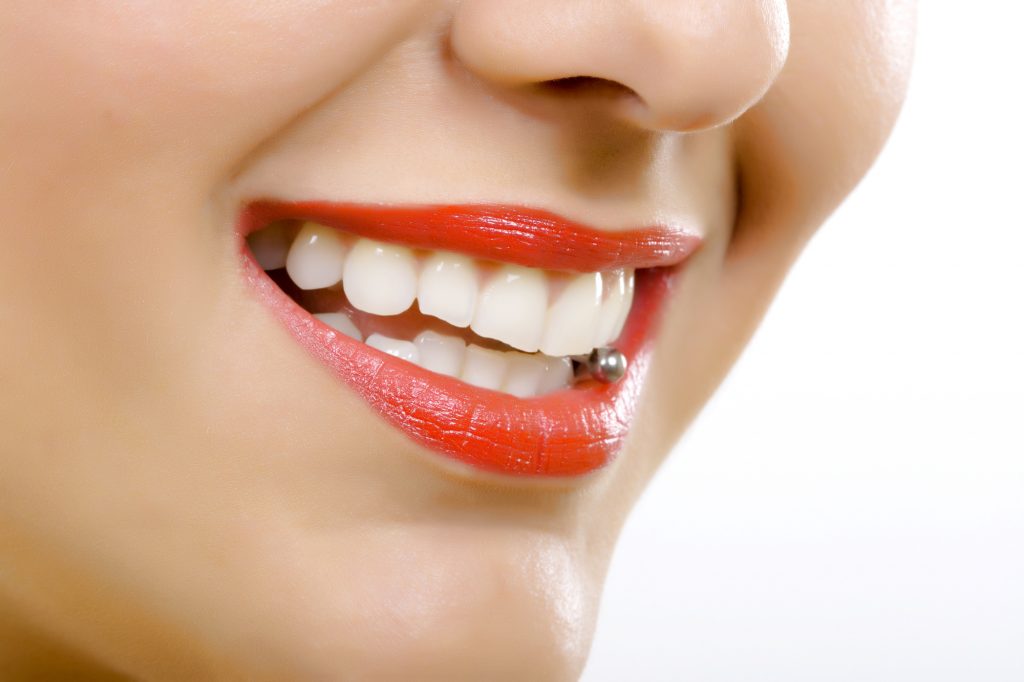
Tongue piercings are becoming fairly popular within modern society but what are their effects on your oral health?
It comes as no surprise that dentists are not the biggest fans of oral piercings. They can cause serious, and often irreversible damage to your teeth and gums. Tongue piercings can interfere with eating, swallowing and speaking and most importantly, cause damage to your teeth and gums as they are constantly coming into contact with the piercing.
There are several different types of tongue piercings but the most common is the stud. A barbell piercing is positioned through the tongue and then the stud is attached to the end to hold it in place. This is often a spherical shape and made out of metal or a polymer material but lots of other shapes are available.
Another common tongue piercing is a ring. This is inserted through the tongue in any position, and can also be pierced through the lingual frenulum. This is the tissue that connects the tongue to the bottom of the mouth.
It is common for people to never remove their tongue piercing. This is because the tongue can heal very quickly so the hole will close up. Because of this, the constant pressure of the piercing on the teeth can make them loosen and move. Gaps can be created where they weren’t previously. This is called diastema, and although it can develop naturally, it is accelerated by the presence of tongue piercings.
If you have a tongue piercing, you will know how easy it is to catch your teeth with the jewellery. This constant contact between your teeth and the piercing can cause the enamel on your teeth to gradually wear and chip away. The enamel on your teeth should be treated with respect, once it has been destroyed it cannot grow back. This exposes the sensitive, and yellow layers underneath called the dentin and pulp. It can even expose the nerves of the tooth, which can be extremely painful. The good news is, this can be treated with root canal treatment.
The normal level of bacteria in the mouth can include more than 500 known types. When you have a tongue piercing, especially in the first few weeks, you will be significantly increasing your chance of infection. Increased levels of bacteria in the mouth can cause many complications and dental problems including excessive amounts of plaque which can eat away at your teeth and cause decay, as well as increasing your chance of developing gum disease.
Recent research has found that patients with tongue piercings have more cases of bleeding, receding or inflamed gums. These are all symptoms of gum disease and if left untreated, can cause tooth loss and has been linked with other overall health issues.
If you do have a tongue piercing, this doesn’t mean you are guaranteed to develop these problems. By choosing and caring for tongue piercings carefully, you can maintain a good level of oral hygiene. You can significantly reduce your chance of developing these problems just by choosing the correct type of mouth jewellery. Here are some tips to help you:
If you are thinking of getting a tongue piercing, make sure you carry out full research and think about the risk to your teeth and gums. If you already have a tongue piercing, it is important to carry out the above steps to protect your oral health from any potential damage.
For more advice or information on the effects of tongue piercings on your oral health, ask your dentist at your next appointment. Call Regent Dental Centre on 0161 941 2143 to book an appointment.


Website last updated: April 2024
Website Designed, Developed and Maintained by Pop Creative